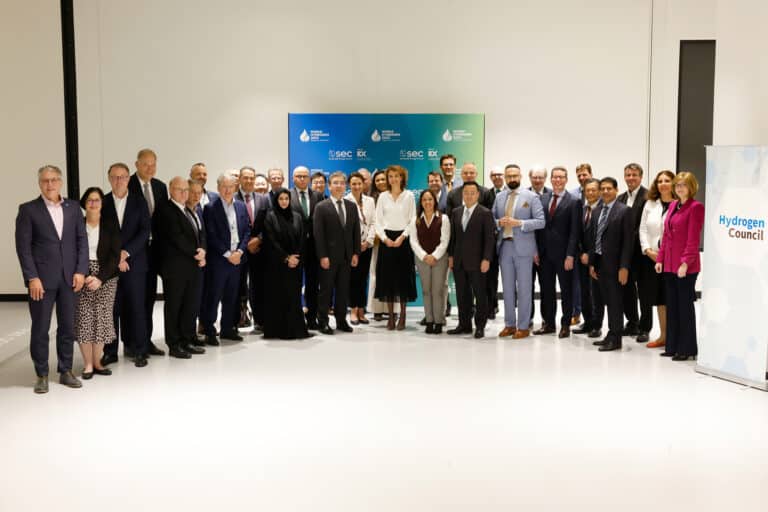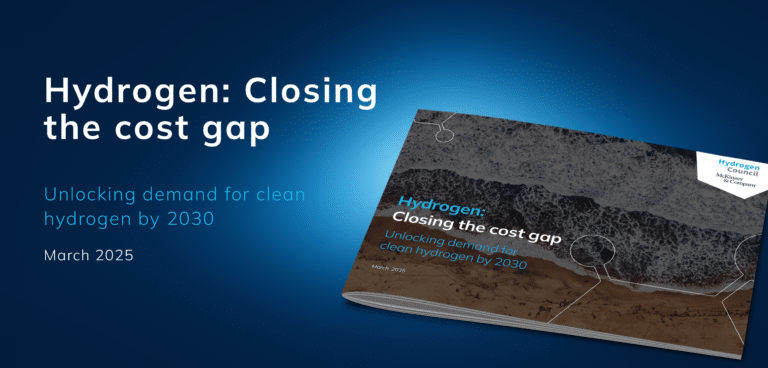BMW was one of 13 founding members of the Hydrogen Council when the global CEO-led initiative was created in 2017. What does it mean to BMW to be a founding member of the Council?
We are proud that we were able to help both found and grow the Hydrogen Council, which quickly has become the leading industry association for the upcoming hydrogen economy. As BMW Group, we have a long history of investigating hydrogen as an energy carrier, nowadays even extending beyond our vehicles to our plants and logistics.
More than five years have passed since the Hydrogen Council launched and the organization has grown significantly in that time. What are some of the biggest milestones achieved so far?
The grow of the Council has been impressive. Due to the numerous, fact-based studies and the work of the study groups, the Hydrogen Council has become one of the most important sources of trusted information regarding the hydrogen economy. Its voice is heard and respected worldwide by governments, organisations, and partners alike.
BMW Group Chairman Oliver Zipse was recently quoted saying BMW will have a viable hydrogen car by the end of the decade. Can you tell us more about BMW’s hydrogen plans?
Just recently, we started the production of our demo fleet of the BMW iX5 Hydrogen, our second generation of fuel cell electric vehicles (FCEVs). After several years of development and intensive testing, these vehicles feature BMW typical driving dynamics, unprecedented in FCEVs. The demo fleet will be used to promote hydrogen mobility and to gain more everyday usage experience as a preparation for a possible mass production model by the end of the decade.
What are the benefits of powering vehicles with hydrogen?
Fuel cell vehicles running on hydrogen are basically electric vehicles which can be refuelled almost as quickly as petrol or diesel cars. This feature is interesting for customers who require a high flexibility or who don’t have a convenient access to electric charging.
A second benefit is that the fuel cell technology uses less (and in part different) raw materials than batteries, which increases the resilience.
What needs to happen next to support the hydrogen sector?
The ramp-up of the hydrogen economy already has started in many regions. Especially regarding “green” hydrogen, there are still uncertainties concerning regulations and standards. We hope that these are resolved quickly and synchronized worldwide. The Hydrogen Council is playing an important role here.
For the mobility sector, the basis for a broader roll-out is the build-up of a refuelling infrastructure that benefits all users, for example commercial vehicles and passenger cars at the same refuelling station.
About The Hydrogen Council
The Hydrogen Council is a global CEO-led initiative that brings together leading companies with a united vision and long-term ambition for hydrogen to foster the clean energy transition. The Council believes that hydrogen has a key role to play in reaching our global decarbonization goals by helping to diversify energy sources worldwide, foster business and technological innovation as drivers for long-term economic growth, and decarbonize hard-to-abate sectors.
Using its global reach to promote collaboration between governments, industry and investors, the Council provides guidance on accelerating the deployment of hydrogen solutions around the world. It also acts as a business marketplace, bringing together a diverse group of 140+ companies based in 20+ countries across the entire hydrogen value chain, including large multinationals, innovative SMEs, and investors.
The Hydrogen Council also serves as a resource for safety standards and an interlocutor for the investment community, while identifying opportunities for regulatory advocacy in key geographies.
To find out more visit www.hydrogencouncil.com and follow us on Twitter @HydrogenCouncil and LinkedIn.
Joanna Sampson, Communications Manager, Hydrogen Council
joanna.sampson@hydrogencouncouncil.com



